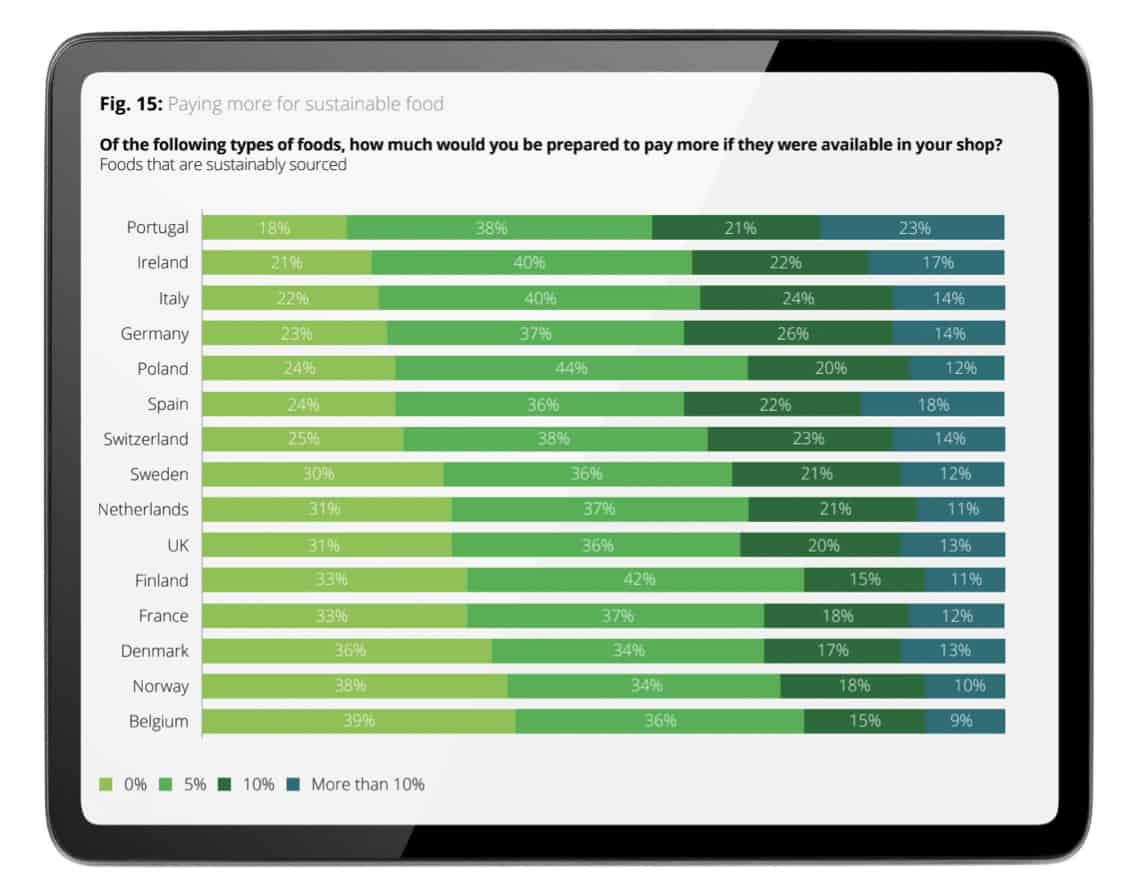This article is part four of the Vegconomist X ProVeg International New Food Hub article series, which aims to make actionable insights into the plant-based space more readily accessible.
Both consumers and businesses are increasingly aware of the urgent need for more sustainable retail – it’s time to align your sustainability goals. Fortunately, there’s a single solution that’s convenient, popular, and scalable and which can propel you towards sustainable success: shifting to plant-rich products. This will help counter the deforestation caused by animal agriculture, cut food-related emissions in half, and help move you toward your net-zero targets.
Plant-based is a win-win
The 2021 pan-EU Smart Protein survey, led by ProVeg International, found that 62% of European consumers want their food to be environmentally sustainable and climate-friendly. However, at the moment, most consumers are going plant-based primarily for health motivations. There’s an opportunity here for brands and retailers to help consumers achieve two goals in one since eating plant-based is generally both healthier and more sustainable than a conventional diet. Win-win. But plant-based foods are often priced at a premium. So, how flexible is consumer spending when it comes to sustainability?
ProVeg International’s new white paper “Sustainable retail strategies – how to align your environmental and sustainability goals with modern consumer preferences” delves into this question, providing you with the seven key ways retailers can support consumers by making plant-rich diets affordable and accessible.

One way ProVeg International suggests to overcome the barrier of price involves promoting a wide range of high quality plant-based products to consumers. Around 40% of consumers in Portugal, Spain, and Germany are willing to pay a premium of 10% or more for sustainable products.
Sustainability can never come at the expense of taste
Although consumers are becoming more environmentally focused, they’re still highly price sensitive. While the majority are only willing to pay 5-10% more for sustainable products, the price disparity between sustainable and unsustainable products is often much larger. Retailers need to hook consumers using the primary motivators of price and taste in order to make them receptive to the benefits of health and sustainability.
“Sustainability can never come at the expense of taste,” explains Cedric Verstraeten, Global Director of Value Creation at AB InBev. “Taste and cost come first,” he adds – confirming what the data shows.
Importance of variety
So, if sustainability ranks below other consumer motivations, how can retailers meet these interconnecting needs? The solution is simple: variety.
Having a wide variety of plant-based alternatives is essential for a number of reasons. First, it caters to a diversity of tastes. Second, it provides a greater range of health benefits. And third, and equally importantly, it taps into a vital psychological phenomenon called the availability heuristic which reflects our tendency to use information that comes to mind quickly and easily when we make decisions.

According to Dr Bianchi at the Behavioural Insights Team, there are three further interventions that retailers can take to support sustainable consumerism for everyone’s benefit:
- Positioning (in-store): placing plant-based options at point-of-sale will make sustainable options more prominent.
- Swaps (online): ensure that your online store’s algorithms always recommend plant-based alternatives or complementary products.
- Labels: use simple labels to help customers identify stores and products that are healthier and more sustainable.
Instead of expecting your consumers to climb a mental mountain every time they go shopping, as they earnestly try to discern the most sustainable option, retailers can have an enormous impact.
Interested in learning more about how retailers can effectively promote plant-based purchasing amongst price-conscious consumers? Check out ProVeg International’s comprehensive new whitepaper “Sustainable retail strategies – how to align your environmental and sustainability goals with modern consumer preferences” and discover how to:
- Stock more plant-based meat alternatives
- Educate and empower consumers
- Leverage your supply chain and product recipes
- Empower your staff to accelerate sustainability
- Make choosing plant-based options easy for flexitarians
- Inform your consumers about their emissions impact
- Design your products with circular-economy principles in mind
Click here to read more and accelerate your company’s transition to your net-zero targets.





